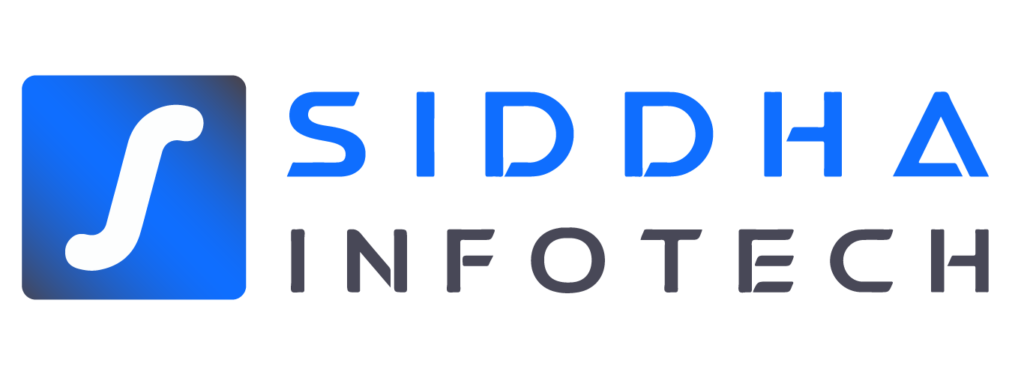Exploring the Best Social Media Platforms for Health & Nutrition Coaches
As a health and nutrition coach, navigating the world of social media can be overwhelming. With so many platforms to choose from, each offering unique features and benefits, it's essential to identify which ones align best with your business goals and target audience. In this section, we'll delve into the top social media platforms for health and nutrition coaches and explore how they can be leveraged to maximize your online presence and reach.
Instagram: A Visual Haven for Health & Nutrition Inspiration
Instagram has revolutionized the way we consume content, particularly in the health and wellness space. With its visually-driven platform, Instagram offers health and nutrition coaches a prime opportunity to showcase their expertise and inspire their audience with captivating images and videos. From sharing nutritious recipes and workout routines to posting motivational quotes and success stories, Instagram allows coaches to connect with their followers on a deeper level and cultivate a loyal community around their brand.
Leveraging Instagram Features for Maximum Impact
One of the key strengths of Instagram lies in its diverse range of features, each offering unique ways to engage with your audience and amplify your message. Here are some strategies for health and nutrition coaches to leverage Instagram effectively:
-
Instagram Stories: With over 500 million daily active users, Instagram Stories provide a powerful platform for coaches to share behind-the-scenes glimpses, daily tips, and interactive polls with their audience. By regularly updating their Stories, coaches can stay top-of-mind and foster a sense of authenticity and connection with their followers.
-
IGTV: IGTV offers health and nutrition coaches an opportunity to dive deeper into their content and provide more in-depth tutorials, cooking demos, and educational videos. By creating compelling IGTV series, coaches can position themselves as experts in their field and attract a dedicated audience eager to learn from their expertise.
-
Hashtags: Hashtags are a crucial tool for increasing discoverability on Instagram and reaching a wider audience. Health and nutrition coaches should research and use relevant hashtags in their posts to increase visibility and attract users interested in their niche. Additionally, creating branded hashtags can encourage user-generated content and foster community engagement.
-
Engagement Strategies: Building meaningful connections with your audience is key to success on Instagram. Coaches should actively engage with their followers by responding to comments, liking and commenting on other users' posts, and participating in Instagram challenges and trends. By fostering a sense of community and dialogue, coaches can strengthen their relationships with their audience and build trust over time.
Facebook: Building Communities and Providing Valuable Content
While Facebook may not be as trendy as Instagram among younger demographics, it remains a powerful platform for building communities and sharing valuable content with a broader audience. For health and nutrition coaches, Facebook offers a range of features, including Pages, Groups, and Live videos, to connect with their audience and establish themselves as authorities in their niche.
Harnessing the Power of Facebook for Health & Nutrition Coaching
Facebook Pages provide coaches with a centralized hub to share updates, blog posts, and resources with their followers. By regularly posting informative and engaging content, coaches can position themselves as trusted sources of information and attract new followers interested in improving their health and wellness.
Facebook Groups offer coaches an opportunity to foster a sense of community and provide personalized support to their audience. By creating a private or exclusive group for clients and followers, coaches can facilitate discussions, share exclusive content, and offer personalized coaching services in a supportive environment.
Facebook Live videos are another valuable tool for health and nutrition coaches to engage with their audience in real-time and showcase their expertise. Whether it's hosting Q&A sessions, conducting cooking demos, or sharing motivational talks, Facebook Live allows coaches to connect with their followers on a deeper level and address their questions and concerns directly.
Pinterest: Inspiring Wellness Through Visual Discovery
Pinterest is often overlooked by health and nutrition coaches, but its unique visual discovery platform offers endless opportunities to inspire and educate your audience. With its focus on curated boards and visually appealing content, Pinterest is the perfect platform for sharing recipes, workout plans, infographics, and inspirational quotes that resonate with health-conscious users.
Crafting Compelling Pins for Maximum Engagement
Creating compelling pins is essential for success on Pinterest. Coaches should focus on creating visually appealing graphics with informative descriptions that entice users to click through to their website or blog. By optimizing pins with relevant keywords and utilizing Pinterest's guided search feature, coaches can increase their visibility and attract users interested in their niche.
Consistency is key on Pinterest. Coaches should aim to regularly update their boards with fresh content, including new recipes, workout routines, and wellness tips. By maintaining an active presence on the platform, coaches can keep their audience engaged and encourage users to follow their boards for ongoing inspiration and motivation.
Collaborating with other creators and participating in group boards can also help coaches expand their reach on Pinterest. By joining relevant group boards and sharing their content with a broader audience, coaches can attract new followers and drive traffic to their website or blog, where they can further nurture leads and convert them into clients.
Conclusion:
In conclusion, choosing the right social media platforms is essential for health and nutrition coaches to effectively market their services, engage with their audience, and establish themselves as authorities in their niche. By strategically leveraging platforms like Instagram, Facebook, and Pinterest, coaches can showcase their expertise, inspire their audience, and drive meaningful engagement that ultimately leads to business growth and success. With the right strategies in place, health and nutrition coaches can harness the power of social media to make a positive impact on the lives of others and achieve their business goals with confidence.
FAQs
Health and nutrition coaches can leverage Instagram by sharing visually appealing content such as healthy recipes, workout routines, and motivational quotes to engage with their audience and showcase their expertise.
On Facebook, health and nutrition coaches can share long-form content, host live Q&A sessions, and create dedicated groups to foster engagement and build a supportive community around their brand.
Pinterest allows health and nutrition coaches to curate boards featuring healthy recipes, workout plans, and wellness tips, helping them inspire and educate their audience while driving traffic to their website or blog.
YouTube provides health and nutrition coaches with a platform to share informative and engaging video content such as cooking tutorials, workout routines, and educational videos on nutrition science, helping them establish credibility and attract new clients.
Health and nutrition coaches can optimize their content for search engines by using relevant keywords, creating high-quality and informative content, and regularly updating their website or blog to improve their visibility and attract organic traffic.
Hashtags can help health and nutrition coaches increase their content's discoverability on social media platforms by categorizing their posts and making them more searchable to users interested in health, wellness, and nutrition-related topics.
Health and nutrition coaches can engage with their audience on social media by responding to comments and messages, asking questions, hosting polls and quizzes, and sharing user-generated content to foster a sense of community and connection.
Some effective strategies for growing a social media following as a health and nutrition coach include consistently posting valuable content, collaborating with influencers and other creators, participating in trending challenges and hashtags, and promoting engagement through contests and giveaways.
Health and nutrition coaches can measure the success of their social media efforts by tracking key metrics such as engagement rate, follower growth, website traffic, and conversion rate to determine the effectiveness of their strategies and make data-driven decisions for future campaigns.
Health and nutrition coaches can create compelling visual content on social media by using high-quality images and videos, incorporating branded elements such as logos and colors, maintaining a consistent aesthetic, and experimenting with different formats and styles to keep their audience engaged.
Health and nutrition coaches can use storytelling to connect with their audience by sharing personal experiences, client success stories, and testimonials to humanize their brand and build trust with their followers.
Consistency is crucial in social media marketing for health and nutrition coaches as it helps maintain brand visibility, establishes credibility, and fosters a loyal community of followers who can rely on regular updates and valuable content from the coach.
Health and nutrition coaches can leverage influencer partnerships by collaborating with influencers in their niche to reach a broader audience, gain credibility, and tap into their followers' trust and engagement.
Health and nutrition coaches can repurpose content for social media by turning blog posts into infographics or videos, creating quote graphics from testimonials or client feedback, and resharing evergreen content with updated captions or visuals to keep it relevant.
Health and nutrition coaches can stay updated on industry trends and changes in social media algorithms by following relevant industry blogs and news sources, attending conferences and webinars, and participating in online communities and forums where professionals share insights and updates.
Some common mistakes to avoid in social media marketing for health and nutrition coaches include overposting, neglecting engagement, using irrelevant hashtags, being too promotional, and failing to measure and analyze results to optimize strategies.
Health and nutrition coaches can leverage social media advertising by creating targeted ads based on demographics, interests, and behaviors to reach their ideal clients, promote their services or products, and drive conversions and leads.
Health and nutrition coaches should adhere to ethical guidelines and standards when promoting their services on social media, including providing accurate and evidence-based information, disclosing any conflicts of interest or affiliations, and respecting client confidentiality and privacy.





